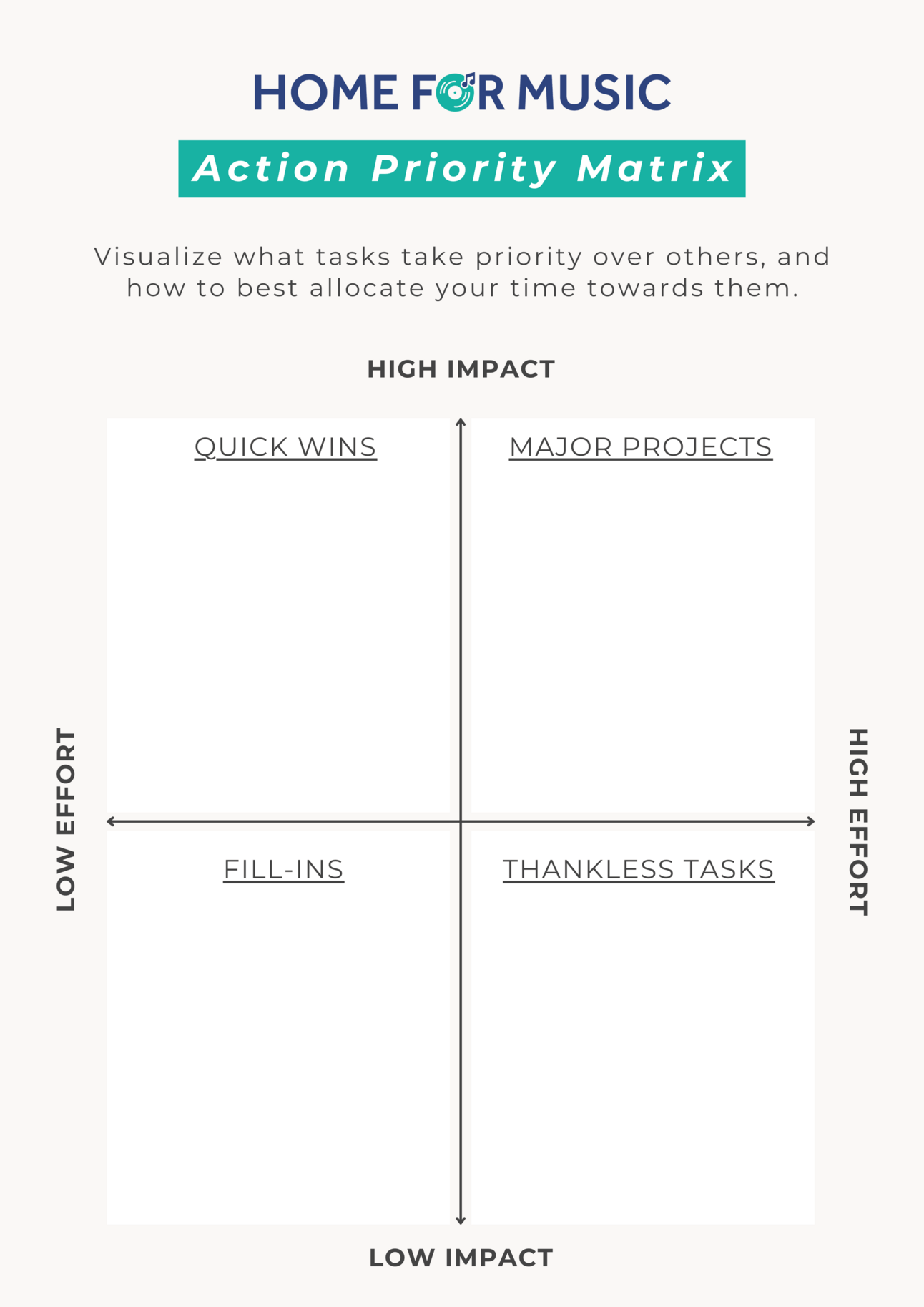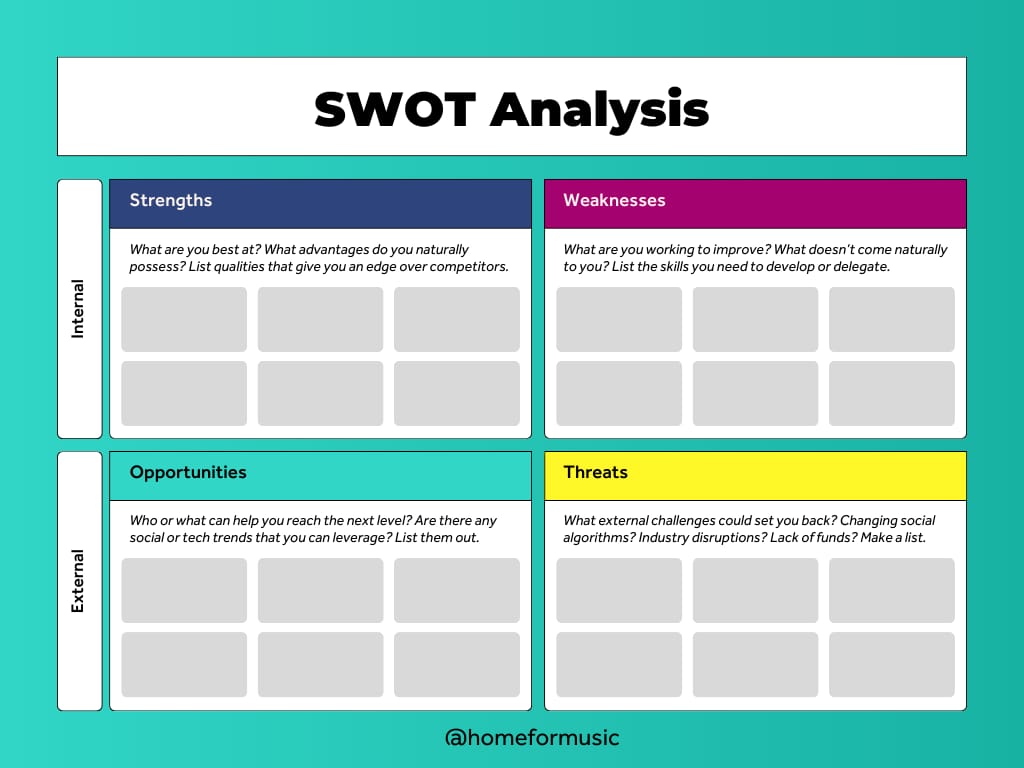
It’s time to get intentional about how you work.
It’s so easy to stay stuck in a cycle of reacting to whatever comes at you, instead of leading your own journey with purpose.
To break free, you’ve got to master The Three Types of Work:
Work as It Comes In
Planning Your Work
Doing Pre-Planned Work
This idea is deceptively simple, but it’s an extremely important distinction that can massively increase your productivity. Let’s break it down so you can redefine your workday, and make sure you’re maximizing your time on what matters most.
1. Work as It Comes In: Avoid the Distraction Trap
The first type of work is reactive.
It’s when you handle tasks as soon as they come in or as soon as you think about them—replying to emails, responding to DMs, or dealing with unexpected requests. It’s also the default mode when you are bouncing around between tasks without a clear plan of what to do next.
It’s usually driven by other people's priorities, not yours.
This is the kind of work that sneaks in and takes over your day if you’re not careful.
Why You Should Protect Yourself from It:
It often falls under the ‘low-skill, low-pay’ category.
It’s usually urgent for others but not important for you.
This type of work keeps you busy, not productive—stealing time and energy from your biggest goals.
Practical Example for Music Creators:
I often see music creators being pulled to constantly play ‘low impact’ gigs every time they are asked to. Because music creators love playing, they underestimate how much time it takes away from the other important important components of their business like content creation and marketing.
For most creators, the marketing is what could really move the needle for them, not playing another writers round.
HARD TRUTH.
Solution:
Minimize work-as-it-comes-in by blocking time to do what you have to do to grow your career sustainably. Protect your creative time fiercely.
Keep your commitments to yourself.
If someone asks you to have a meeting with them during one of your time blocks, you politely decline and say that you already have a prior commitment.
It’s TRUE!
Important Note: Unless you are planning your work, you are ONLY able to do work as it comes in. You will always be working on what is pulling you the hardest or what deadline is closest instead of your true long term vision.
2. Planning Your Work: Design Your Path
The second type of work is strategic.
For a refresher, read Strategic Thinking 101. Here are a few worksheets to review:



Use these worksheets to plan what you need to accomplish to hit your big goals.
You’re deciding on priorities, laying out timelines, and making sure you’re focusing on high-impact activities.
Why It’s Important:
When you plan, you ensure your actions align with your vision, not someone else’s.
You’re designing a clear path forward, avoiding aimless work.
It helps you focus on the ‘not urgent but important’ tasks—those critical actions that will drive real success over time.
Practical Example for Music Creators:
Imagine you’re planning to release a new song. Instead of winging it, you sit down and map out the whole release process—content schedule, marketing plan, playlist strategy, everything. You’re setting deadlines and visualizing how all the pieces come together.
Planning Your Work might also mean deciding which songs to focus on for sync licensing, which collaborators to prioritize, and what marketing initiatives to pursue in the next few months.
It's all about being the architect of your own destiny.
3. Doing Pre-Planned Work: Execute with Impact
The final and most important type of work is pre-planned work.
This is when you’re in execution mode—doing what you’ve already laid out during your planning sessions.
You’re not reacting to distractions or figuring out what to do next.
You’re simply executing on your strategy and your plan.
Why It’s Key to Success:
Focused execution is what makes the big goals happen!
It moves you away from the reactive and into the intentional.
Most of this work is what the Eisenhower matrix calls ‘not urgent but important’—the kind of work that has a lasting impact but often doesn’t scream for immediate attention.
Practical Example for Music Creators:
Think of writing and producing a song—if it’s part of your pre-planned work, you’ve blocked out a full morning to dive in.
You’re working on the track without interruption, because you’ve planned it, you know it’s a priority, and you’re making real progress.
In a similar way, you must make sure you block off time to do the pre-planned content creation, running ads, and connecting with potential team members—assuming those tasks are tied to your ultimate goal of building a major music career.
Recap: How to Crush Your Music Goals 👊
When it comes to doing pre-planned work, you need structures that protect your focus. Here’s where time blocking and task batching come in:
Time Blocking: Dedicate blocks of time on your calendar specifically to deep creative work, planning sessions, or other pre-planned activities. During this time, you only focus on that one category of work—whether it’s songwriting, mixing, or strategizing your marketing plan. No distractions.
Task Batching: Group similar tasks together to reduce the mental load of switching. Set aside a whole afternoon just for content creation, or squeeze all of your meetings into an entire day once a week. This helps you stay in the creative zone and get more done.
So what does this look like in practice?
Here's an example of how you might structure your music creation flow using the Three Types of Work:
Set aside time at the beginning of each week to PLAN your work.
Review your goals and projects
Break down next steps into specific tasks
Schedule time blocks for different types of work
Protect the majority of your time for PRE-PLANNED work.
Focus on high-impact, goal-aligned tasks
Use time blocking and task batching for efficiency
Find a distraction free workplace like HOME - Helping Our Music Evolve
Set boundaries around WORK AS IT COMES IN
Check emails/DMs/notifications ONLY at designated times
Learn to say no to off-brand opportunities
Put your phone and computer in focus mode
The goal is simple: maximize the time you spend doing planned work that drives you toward your highest goals.
Minimize the time spent reacting to things that pull you away from your vision.
Remember, what gets scheduled gets done. Make sure your schedule reflects the career you want to build, not just the noise that’s coming at you.
By following this flow, you ensure that the bulk of your time and energy is going towards work that is moving you closer to your dreams, not just keeping you busy.
And that's what it's all about - being intentional, strategic, and focused in your creative pursuit.
You get to decide what to focus on, what to say yes or no to, and how to spend your most precious resources - your time, energy and attention.
Use this framework to reclaim that control, stay aligned with your true north, and build the music career of your dreams, one thoughtful, pre-planned step at a time.
Plan your work, protect your time, and execute relentlessly.
That’s how you go from being just busy, to being unstoppable.
Other HOMIE Resources for Planning, Projects & Productivity:
